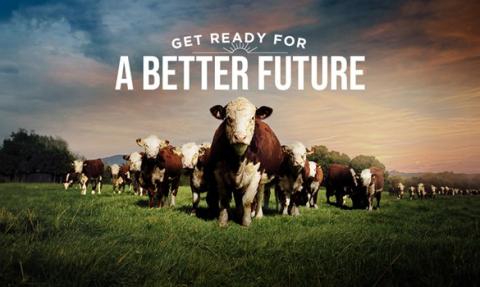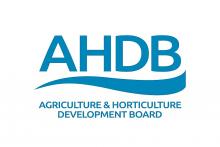We all know that farming with the environment in mind is at the forefront of our industry, so join us to find out what that looks like in practice.
Our new Roots to Resilience programme equips you with the learning you need to take your beef and lamb businesses to the next level.
At this event, we’ll tap into the expertise and experience of our speakers to find the answers that you need to take your business forward. What can you practically do on your farm that will improve ecosystem function while maintaining your desired level of production?
We’ll hear real-life case studies that showcase systems changes in the USA and UK and pick the brains of those that have been most involved in the process.
Backed by the extensive research experience of world-renowned Jason Rowntree from Michigan State University, we’ll demonstrate how ecological functioning and production can go hand in hand.
Please note, this event is for farmers and growers only; we politely ask allied industry colleagues not to register. Jason will, however, be speaking at the British Cattle Breeders Conference on Tuesday 23 January in Telford, you can book your tickets here.
Refreshments and lunch will be provided.
BASIS points will be available for attending.
Speakers
- Jason Rowntree, Professor of Animal Science, Michigan State University
- Ian Horsley, farmer, Worcestershire
- Silas Hedley–Lawrence, farm manager, FAI Farms, Oxfordshire
- Emily Padfield, farmer and journalist, Warwickshire
Jason Rowntree
Jason Rowntree is the director of Michigan State University’s Centre for Regenerative Agriculture and has been responsible for the system change that has taken place there, using holistic and regenerative management principles to improve soil properties, forage production and ecological function while employing an 18–20-month finishing model.
Jason’s research focus is identifying the metrics and management that reflect ecological improvement in grazing land systems.
He has also worked to co-develop, with the Savory Institute, an Ecological Outcome Verification (EOV) that is now being used on over 2m acres of grasslands on every continent except Antarctica. He is also the project director of a new $19.2m-funded project entitled, 'Metrics, Management, and Monitoring: An Investigation of Pasture and Rangeland Soil Health and its Drivers'.
His work in beef sustainability has been featured in the movie Sacred Cow, The Washington Post, New York Times, Forbes and many other popular media publications.
Ian Horsley
Ian and his wife, Rosanna, are first-generation farmers who started on a small traditional farm in Devon in 2014 and then expanded the business and moved up to Worcestershire in 2017.
Change has been a constant through Ian’s farming career, developing a performance-recorded Lleyn flock and then, two years ago, making the decision that cattle would be better suited to their regenerative farming approach. Baston Hall is now 90% Aberdeen Angus cattle and 10% sheep, with a key focus on soil health, biodiversity and pasture-fed meat.
The livestock are grazed using an adaptive multi-paddock mob-grazing system and selected to thrive on pasture, support a calf over winter on hay and pasture alone and calve unaided each year. Cattle are bale-grazed outdoors for the bulk of winter, significantly reducing feed and housing costs from £2.82/day to £1.09/day. Ian is also involved in an Innovative Farmers field lab, studying the wider benefits of this system.
The farm is in Mid-Tier Countryside Stewardship, including hedge laying, GS4 legume and herb-rich swards and GS2 low-input grassland.
Silas Hedley–Lawrence
Silas is FAI’s farm manager, overseeing the commercial farming enterprise and coordinating the farm with its research obligations.
Silas has eight years of experience managing farms regeneratively, with an emphasis on organic year-round grazing systems.
With ties to New Zealand through his family dairy farm and kiwi fruit orchards, he maintains an emphasis on lean, profitable farming systems that also deliver on increasing biodiversity and soil health gains.
Emily Padfield
Emily Padfield farms beef and sheep alongside her husband in Warwickshire and is also a freelance journalist.
The lowland heavy-clay farm has transitioned from an 800-ewe indoor-lambing intensive sheep enterprise to one that now includes suckler cattle, a smaller lower-input outdoor lambing flock, property lets and a new equestrian partnership as well as a Mid-Tier Countryside Stewardship Scheme which utilises grant opportunities wherever possible.
Emily is also a 2022 Nuffield Scholar who has just presented her scholarship: “The Mob-Grazed Flerd: Improving soil, biodiversity and farm incomes"



